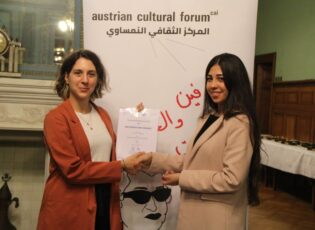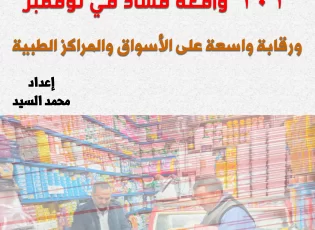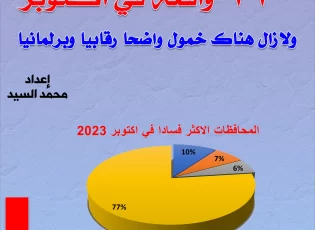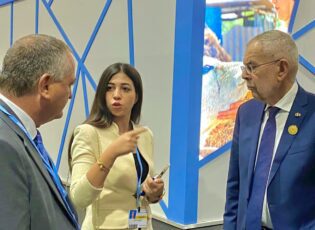Social accountability committees and social safety nets

Social accountability committees and social safety nets
an introduction:
The state faces many problems, the problem of which is headed by the problem of poverty in addition to the inequality gap between the poor and the rich, which led to the growth of many negative phenomena such as violence, conflicts and corruption, which required setting up development programs aimed at reducing poverty and improving the social conditions of individuals, and the social security system was the most prominent strategy Which aims to do so, but by adopting the state’s economic reform policy, the rates of poverty, unemployment and marginalization of the poor classes increased, and thus depriving them of fair participation in their most basic rights and excluding the poor from participating in development. Given this, there were attempts to implement aid programs that deal with the social aspect of individuals, including the conditional cash support program. “Solidarity and dignity” as an attempt to integrate the poor groups into the group of producers by providing appropriate opportunities for their abilities, and limiting the number of those who are not eligible from the social safety net by setting conditions for obtaining cash support that the beneficiaries are committed to achieving. Despite this, some problems were found during the implementation of the program in the early stages, where There were some infringements on the rights of the poor, with the lack of support reaching those who deserve it, which required me to Intervention to fight corruption in implementing the program, including the social accountability committees.
- the study Problem:
The Egyptian government has made several attempts to alleviate the problem of poverty, but the problem is still complex, as the poverty rate in Egypt is 27.8%.([1])Therefore, the state provides financial assistance to the most vulnerable through the application of non-traditional social safety nets by introducing a conditional cash support program “Takaful and Dignity”, which aims to enhance access to basic rights for poor families and link them to the social dimension to prevent the inheritance of poverty, and to reach high development rates, And limiting the number of those who are not eligible by setting conditions for obtaining cash support that the beneficiaries are committed to achieving.
At the beginning of its implementation, this program faced some excesses, including that its advantages have pushed the restaurants that do not apply to them to make attempts to benefit from it, and in light of the huge numbers of applicants, the degree of apathy and negativity on the part of some of the implementers of the program increased, and with the lack of awareness among the affected individuals to understand the procedures This led to the intervention of the state’s supervisory authorities to fight corruption in the application of social safety nets, including the activation of social accountability committees as an approach aimed at involving citizens and civil society organizations in requesting accountability.([2])And as a necessity to combat corruption during the implementation of the conditional cash support program Takaful and Dignity under the supervision of the Ministry of Social Solidarity, which was applied to eradicate poverty under the slogan of Egypt without want.
- the importance of studying:
The importance of the study is highlighted in that it deals with an important and contemporary issue, given its connection with the implementation of the 2030 Sustainable Development Plan, because of the effective contribution of social safety nets in achieving high rates of development and poverty reduction, and the contribution of social accountability in combating corruption that impedes the achievement of the targeted rates of Development.
- Study objectives and questions:
The study aims to identify the role of social accountability committees to achieve the goal of entitlement to the targeted families of implementing the Takaful and Dignity program and to reduce the forms of corruption that affected the implementation of the program and to identify the challenges facing the activation of the accountability committees in achieving their goal, by answering several questions, including:
- What are the principles for selecting members of the social accountability committees for the Takaful and Karama program to ensure their effectiveness?
- What is the competence of the social accountability committees for the Takaful and Karama program to achieve the purpose for which they were established?
- What are the work mechanisms of the social accountability committees for the Takaful and Karama program to ensure that their goal is achieved?
- What are the follow-up mechanisms for the social accountability committees of the Takaful and Karama program to ensure their seriousness?
- Study theory:
The study relied on the game theory, which interpreted corruption from an economic perspective, and believes that corrupt practices do not happen randomly, but are done through accurate accounts for each party, while the negative effects resulting from corrupt attitudes are incurred by the economic development process and thus society as a whole.
- Type, methodology, and sample of the study:
It is one of the descriptive studies that relied on the sample social survey methodology, and in collecting the data an interview guide form was used with the research sample of 25 members of the Social Accountability Committee, and 4 focus groups for 50 beneficiaries of the Takaful and Karama program in Alexandria, in addition to analyzing some Ready data.
- Previous studies:
Several previous studies have been reviewed by the researcher in preparing the study, including Hassan Mustafa Hassan's study (2010) entitled The Effectiveness of Social Safety Networks in Egypt([3]), Which concluded the contribution of social safety network services to improving the economic, social, health, educational and nutritional level of the beneficiaries, and Mona Atia Khouzam (2006) study entitled Social Safety Net and confronting poverty for residents of slum areas([4])And its results indicate the effectiveness of the role of the social safety net in facing the problem of poverty and the presence of obstacles facing the citizen from taking advantage of them, represented by those in charge of providing service to citizens.
First: the social safety net in light of the constitution:
The United Nations Development Program refers to social safety nets as an integrated package of institutional support measures for groups affected and not benefiting from economic reform measures, issuing legislations that protect these groups, encouraging their members and helping them to benefit from the expected benefits of reform.([5])It is also considered one of the methods of social work, and a means of stability and balance in society, and states seek to activate them through legislation and laws directed at needy and marginalized groups.
In Egypt, the state's interest in serious attempts to achieve social development and protection has increased by activating social safety nets as well as eliminating corruption, and this is evident through the 2014 constitution, and this was evident by describing the constitution as written in order to close the door to any corruption or tyranny, treat victims of neglect and eliminate injustice. The people, in line with the Universal Declaration of Human Rights, in safeguarding freedoms and protecting the homeland from all that threatens it, and in a way that achieves equality among all individuals in rights and duties without any discrimination.
With regard to the implementation of the social safety net, Article (8) of the constitution concerns that society is based on social solidarity and the state is committed to achieving social justice and providing means of social solidarity in a way that guarantees a decent life for all citizens, and Article (17) that the state guarantees the provision of social insurance services and for every citizen who does not enjoy The social insurance system has the right to social security in a way that guarantees a decent life for him if he is not able to support himself and his family in cases of inability to work, old age and unemployment, and Article (27) that the economic system aims to achieve prosperity in the country through sustainable development and social justice in a way that guarantees raising The real growth rate of the national economy, raising the standard of living, increasing job opportunities, reducing unemployment rates and eliminating poverty, and is committed to standards of transparency and governance.
With regard to the implementation of anti-corruption mechanisms, Article (218) is concerned with the state's commitment to combating corruption. The law defines the relevant regulatory bodies and agencies that are committed to this, and which are committed to coordinating among themselves in combating corruption and promoting the values of integrity and transparency, in order to ensure the proper performance of the public office or the preservation of public money, and to establish and follow up the implementation of The National Anti-Corruption Strategy, in partnership with other relevant bodies and agencies, in the manner organized by law.([6])
The National Anti-Corruption Coordinating Committee was also tasked with preparing detailed mechanisms to implement the objectives of the National Anti-Corruption Strategy, which starts from December 2014 until the end of December 2018, which is to raise the level of performance of the state's government and administrative apparatus, improve public services, establish principles of transparency and integrity for employees of the state’s administrative apparatus, and raise the standard of living. For citizens, achieving social justice, strengthening local cooperation in the field of fighting corruption, and the participation of civil society organizations in combating corruption, and it is based on several principles, including the principle of accountability according to which the state authorities are responsible for carrying out their duties in implementing the strategy and action plan and ensuring its effectiveness.([7])
Second: The evolution of the social safety net in Egypt:
The social safety network is a major component of social protection programs that work to protect people from dangers and shocks, break the cycle of vulnerability and poverty, and focus on the causes of poverty and social exclusion, and its goal is to unleash the productive potential of people who are able to work, and alleviate the suffering of the most needy through projects. Aiming to improve their standard of living([8])Empowering some segments of society affected by the economic downturn, wars and indebtedness, and limiting the negative social impacts of economic reform policies that fall on the shoulders of the poor, such as rising unemployment and increasing poverty.([9])The social safety net is divided into traditional and modern networks, and the traditional network is represented by some programs, including:
- Traditional social safety net: In Egypt, it consists of Social Security, Nasser Social Bank:
- Social security :
Social security is a mandatory method that the state takes to achieve social safety for its citizens in the face of social risks by granting them cash and in-kind benefits([10])This commitment fulfills the liberation of society from the dangers that, if neglected, will lead to its weakness and delay, as it is also linked to the economic and social conditions of the state to reach alleviating the need for individuals and preventing its causes([11])And it seeks to cover all needy groups through the two systems of insurance and social assistance, and by means of them guarantees a person an income to meet the fluctuations of time, insurance based on work, wages and contributions represents the basic guarantee, while the assistance is provided as a temporary resource until the person becomes entitled to insurance, as it is provided to the person who does not meet the insurance to meet his own needs ([12]).
- Nasser Social Bank:
It is the first Islamic social bank in the world, and a public body operating under the supervision of the Ministry of Social Solidarity whose resources are concentrated from zakat funds, and it was established by Law No. 66 of 1971 with the aim of achieving social solidarity, reducing unemployment rates, improving the standard of living, providing health and social care and assistance to vulnerable and needy groups, and achieving justice and equality And providing a decent life for individuals([13]).
- Modern Social Safety Network: They are represented in the Small, Medium and Micro Enterprises Authority, and the Takaful and Karama program, which are as follows:
- Small, Medium and Micro Enterprises Authority:
The Small, Medium and Micro Enterprises Authority, or what was previously called (the Social Fund for Development) was established by Republican Decree No. 40 of 1991 as a social safety network that aims to meet the needs of the population most affected by economic and structural reform programs and works to reduce the poverty gap by providing a range of services to the poor through development Small enterprises and providing job opportunities for young people to contribute to solving the problem of unemployment and dealing with the side effects of economic reform and structural adjustment and alleviating the burden of economic reform measures on the shoulders of low-income people. The agency is a joint initiative between the Egyptian government and both the World Bank and the United Nations Development Program, and the actual work was done in March 1993.([14])
- The conditional cash support program Takaful and Karama:
The Egyptian government realized the importance of the issue of social justice and redistributed government support to reach its actual beneficiaries, so the Ministry of Social Solidarity, in cooperation with some ministries and agencies, began implementing the conditional cash support program Takaful and Karama in accordance with Prime Minister Decision No. 540 of 2015 and the Minister of Social Solidarity Resolution No. 230 dated 27 / 5/2015 Concerning the Implementing Regulations of the Program([15])With the aim of besieging the map of poverty in Egypt and alleviating its severity while upholding the values of human development, improving the quality of life, and applying the priority of entitlement among the target program groups by supporting the poorest.
The program is directed to two categories: families with children enrolled in different stages of education up to secondary school or young people in need of health care and follow-up, and this is the category to which the Takaful program is applied, and it is required that the status of families or advanced individuals be below the poverty line based on the established statistical equation, Not obtaining any fixed monthly income, insurance pension, or social security assistance, and for the continuation of entitlement there are two conditions, the first of which is educational, which is that her children continue to attend schools at a rate not less than 80% of the actual school days, and a health condition for the family to implement health care programs set by the Ministry Health, including monitoring pregnancy for mothers and implementing vaccination and prevention programs for newborns under 6 years old, and that the maximum number of children in the beneficiary family is three children, and the second category is the elderly over 65 years old who are unable to work and have no fixed income sources or the disabled with a disability rate starting from 50 % Prevents them from working and earning, and they do not have a fixed income, and this is the category to which the Karama program applies.([16])
The Ministry has set rules and mechanisms for working in the program, including electronic entry and not containing the researcher’s opinion in order to prevent the occurrence of cases of corruption as a result of mediation, courtesy and other things. As for the solidarity pension, families present to the social unit affiliated to it with the required documents and the applicant fills in the application form for the program, which includes data on the living situation, income and all Indicators indicating the economic and social level of the family. As for the dignity pension, the disabled person submits to the unit to present his papers and books the medical examination via the Internet from the medical commission website to determine the date and place and after signing the examination, he gets a number from the examination site to hand it over to the social unit affiliated with it, while completing the remaining documents After completing the required documents, the unit conducts a field search of the case, completes the data form and attaches it with the documents, in order to record it on the special tablet for that, to send the data directly to the Ministry so that the case is examined and the equation set for eligibility is made ([17]).
The number of beneficiaries of the Takaful and Karama program in Alexandria governorate reached 4,201 cases of dignity, 34,261 cases of solidarity, with a total of 38,462 cases for the two parts of the program, and the total amounts disbursed 109,570,995 pounds divided into an amount of 7,752,750, 101,818,245 pounds for the Karama and Takaful program, respectively, until the end of December 2017. ([18])
While the percentages of the beneficiaries of the Takaful and Karama program in Alexandria governorate divided into the social administrations in Alexandria city in December 2017 indicated that the customs administration contained the lowest percentage of the beneficiaries of the program at 2.2%, while the Amiriyah administration included the largest percentage of the program beneficiaries at 45%, and this reflects The rate of poverty increases in Al-Amiriyah neighborhood compared to the rest of the neighborhoods because of its residents' characteristics that they are the desert and rural back of the governorate and the habits and traditions it carries different from the rest of the governorate with a decrease in the standard of living and an increase in the illiteracy rate. The rate of illiteracy and the improvement of the level of families and individuals in them. At the same time, it is expected that cases of unworthy of the pension will arise, such as fraud by the owners of agricultural lands.
The eligibility of the program is verified by reviewing the household forms in the field by researchers, and by office verification to ensure the correctness of the data at the central level, verification by the partner agencies by linking the databases of clients and applicants for the program with the databases of social security pensions, insurance pensions, civil status and the Passport Authority. And migration, and internal, so that it is quickly and confidentially ascertained, on-site verification by drawing a sample of 10% of the total beneficiary families on a quarterly basis, and finally, verification through community accountability committees.
Third: Social accountability committees for the Takaful and Karama program:
Social accountability is a vital factor in achieving development, and accountability and transparency are two of the main principles of the development approach based on human rights and an essential element for the success of anti-corruption strategies.([19])It refers to the participation of citizens and civil society organizations in public decision-making, holding the government accountable for its actions, and monitoring and evaluating its performance, especially with regard to managing public resources and providing services.([20])
According to Alexandria Governor Decision No. 83 of 2018, a decision was issued to form a Social Accountability Committee regarding entitlement to conditional cash support assistance. A Takaful and Dignity program for some groups on each social unit in which the Takaful and Dignity program is implemented under the chairmanship of the district president and the membership of 13 members, including the head of the social unit, 2 women leaders and a representative from Male popular leaders, a representative of the young community leaders, a rural pioneer, an imam of a mosque, a church priest, a number of two representatives of two different active and well-reputed NGOs, a representative from the health unit, and a representative from the school in the neighborhood.
- Selecting the members of the community accountability committees:
All members of the study sample from members of the community accountability committees confirmed that members are chosen through nominations, and the member himself does not submit a request for nomination to confirm the integrity and transparency in choosing members. When the social accountability committees are announced, many individuals wanted to join the committees' membership, but they were not nominated.
70% of the study sample members of the community accountability committees confirmed that the members are chosen through nominations from the neighborhood head in cooperation with the head of the social unit, depending on the member’s biography and reputation in the surrounding community, which reflects the extent of his integrity, interaction and connection with the community members present in him, and distance from Mediation and favoritism.
30% of the sample stated that although the formation of the committee and the selection of its members is done in coordination and cooperation between the head of the neighborhood and the head of the social unit, the reality reflects that in many cases, reliance was mainly on the head of the unit to do so, as the opinions of the unit head were resorted to. And relying on him to nominate some members, such as popular and community leaders, representatives of societies and clerics.
By asking the study sample from the unit heads about the conditions that were adhered to in choosing the members, they all emphasized their commitment to the following conditions, which is that the committee does not include relatives up to the third degree, or that it includes more than one member affiliated with one body other than the social unit, and they were keen and tried as much as possible to include The committee is among its members a person who is a disability challenge. The committee also asked members representing certain bodies, such as endowments, the church, associations, health units, and education to bring a mandate for the body in which you work.
15% of the study sample of unit heads stated that they faced some difficulties in nominating members, especially the Christian cleric, and that members of the church were recruited to perform the same task and were not clerics.
- Procedures taken by the Ministry of Social Solidarity to prepare and train committee members:
- Holding a training course:
The results of the field study sample revealed that the Ministry of Social Solidarity held an organized training course from the Central Administration for Social Protection for a period of two days from December 3, 2017 to clarify the responsibility of the committee members, who amounted to about 1053 members at the governorate level, divided into 81 social units belonging to seven social departments that include each committee 13 members belonging to each social unit, and the aim of the training is to get acquainted with the concept of the Takaful and Karama program, which does not know the details of the members of the committees who are not working with social solidarity, and to identify the role of the community accountability committees for the Takaful and Karama program, their specialization and follow-up mechanisms. During this training workshop, the door for discussions was opened. And respond to inquiries in this regard.
40% of the committee members indicated that during the initial training session, some means of communication were identified between the committee members and the committee officials in the ministry, and in the event that a problem or inquiry was encountered, the committee official in the administration and the monitoring and follow-up official would be resorted to and from their side they inquire from the directorate and the ministry and send the response quickly through Phone (WhatsApp).
- Hold an initial meeting and take the oath:
The study sample reported that the Directorate of Social Solidarity in Alexandria held a meeting for all members of the committees at the governorate level in the presence of the Governor of Alexandria, the Undersecretary of the Ministry of Social Solidarity in Alexandria and the Social Accountability Officer at the Ministry on 1/30/2018 and all the committee members took the oath whose content is commitment to cooperate with all members To verify that solidarity support and dignity reach to those who deserve it from the poor, the elderly, people with disabilities and orphans, and commitment to justice, integrity, honesty and confidentiality of information and not to disclose the secrets of the work of committees, honesty and seriousness in the search and investigation process, and that the work is purely for the sake of God Almighty, society and the homeland, with the commitment of the committee members to this work As a national duty, which is a voluntary work without financial compensation, which gave this work sacredness to ensure that its members work with perfection and seriousness.
- Holding a set of internal and external partnerships:
A group of respondents who are members of the committees indicated that the ministry had formed a set of partnerships between different bodies in the governorate, including supplying the committee with members submitted by various bodies, including government agencies, civil society organizations and individuals, in addition to the fact that committee meetings are often held at the headquarters of civil societies, as well as the Youth and Sports Directorate. She received the first meeting of the members, believing in her participation in this great event, which was held at the Abu Qir Youth Center, and this reflects the reliance of the effectiveness of the accountability committee's work on the participatory and cooperative relationship between the Solidarity Directorate and other bodies.
- Committee terms of reference:
All sample members see that the Ministry is keen on periodic evaluation of the program in order to ensure the accuracy of the data and in faith in its importance in helping the poor and marginalized groups, because it is a program that links between poverty eradication and high rates of development, and it uses the following:
- Initial verification of the families' entitlement to the program or not:
All sample respondents confirmed that all members assist the social unit in the process of initial verification of the extent to which families are entitled to the program or not, based on their previous knowledge of the families applying for support. The members receive applicants' lists from the social unit, classify lists, provide evidence of lack of entitlement, then hold A session for final agreement on the lists, and according to that, final lists are submitted to the new recipients.
- Submit lists of non-eligible current beneficiaries:
The sample of respondents reported that all members submitted lists of non-eligible beneficiaries of the program, sorting and filtering the lists of current beneficiaries, as they receive the statements from the social unit and classify the lists, provide evidence of non-entitlement and then hold a session for the final agreement on the lists, and accordingly a list of non-eligible people is presented from Current beneficiaries.
- Checking the availability and quality of program services:
By asking the sample respondents about how they verify the availability and quality of the program’s services, all of them answered that the representatives of the health unit, school, and associations, the rural pioneer, youth leaderships, verified the availability and quality of educational and health services, by designing a form on the availability and quality of services, and obtaining statements. With pupils from 6 to 18 years old in their schools, obtaining a list of mothers who benefit from health services, and a follow-up form for attending health and educational services by name, and according to this, a report is made on the availability of health and educational services within the scope of the unit's work, a report on their quality, and a report on school attendance rates And access to health services.
- Provide lists of beneficiaries and non-beneficiaries of the program:
The sample of respondents indicated that representatives of associations, rural pioneers, representatives of places of worship, and youth leaderships provide data to families that do not benefit from the program and who meet the requirements for submission after collecting information on poor families, submitting it to social unity, and following up on the extent of their going to social unity and facilitating their affairs.
- Participation in supporting community communication activities about the program:
The research sample reported that representatives of associations, rural pioneers, representatives of places of worship, youth leaders, representatives of schools participate in supporting community communication activities about the Takaful and Karama program to inform families about the conditions of the program, the required documents, the date and place of application to register their data, and the conditions for continuing the program related to health and education. By using several means, such as holding seminars for civil societies in cooperation with the Social Protection Department at the Social Solidarity Directorate, social departments and units, as well as publications, videos and the program’s Facebook page, thus increasing awareness rates of the program, its conditions, importance and continuity, and thus achieving its goal.
- Helping families to facilitate the procedures for obtaining the required documents:
The research sample indicated that the responsible of the social unit, the associations, the school, coordinates and follows up with the schools, agricultural associations in rural areas, and the medical commission, in order to facilitate the "targeted" potential beneficiaries to obtain the required documents and submit in a timely manner.
All respondents reported that their own identification cards were not issued to facilitate the process of communication, coordination and follow-up with other authorities to facilitate the beneficiaries' access to the documents, and they emphasized that although they are related to the surrounding community, but in this task they need identification cards for the Social Accountability Committee to facilitate The task, in addition to preventing counterfeiters doing the job.
- The committee's work mechanisms:
- Holding meetings:
90% of the respondents confirmed that the committees meet whenever needed according to the lists sent from the ministry for the purpose of verification after distribution to the committee members, and although the necessity of holding committee meetings periodically, weekly, bi-monthly, or monthly, according to the decision of the governor for social accountability, but This does not happen in reality, given that voluntary work is specified outside the official working hours and outside the scope and place of work, and that the members of the committees find it difficult and difficult in this to refuse the government agencies (social solidarity, health, education) to make an itinerary in this office, and therefore there is no suitable date that is consistent By all members.
The research sample from the committee members reported that they were advised not to hold the meeting at the headquarters of the social unit. Therefore, resorting to the headquarters of one of the societies for the meeting is used, and this may not be available continuously.
- Reporting:
By asking the respondents about preparing reports on their achievement, 50% indicated that the committee is committed to writing and submitting a monthly report on its achievements to the Department of Monitoring and Follow-up in the Social Administration.
The committee members who are unit heads indicated that as a result of some members not attending the meetings, as there is no time suitable for all, the majority is relied upon to sign the committee's reports.
All respondents confirmed that, upon the committee’s arrival to the results of the investigation and verification of the beneficiaries ’entitlement or lack thereof, from the sums of the program, a report of the final results of the unit will be sent to the administration to add them to the electronic databases.
- Mechanisms to follow up the committee:
Respondents from the unit heads reported that until now the work steps in the committees are unclear and sometimes there is a conflict of specializations, despite the determination of the work of the Control and Follow-up Department in the Social Administration to follow up on the work of the committees, attend the meetings of the committees at the management level, participate in the training, follow up the development of the quarterly periodic plans for the committees, Following up on the implementation of plans, but some abuses occur as a result of a lack of accurate understanding of the terms of reference, for example, the Control and Follow-up Department of a Social Administration has transferred the Chairman of the Social Accountability Committee to investigate for not holding the periodic meeting, while this is not among his competencies.
All respondents confirmed that although the committee sends a report with the final results of the unit and from there to the administration to add them to the electronic databases, the ministry does not provide feedback until it is known who was excluded from the unworthy individuals as a result of the investigation report of the Community Accountability Committee, so until now it has not been completed Monitoring the stalled numbers, and likewise, no punishment has been carried out on violators to recover the amounts disbursed unlawfully, due to the lack of knowledge of the stalled cases, and they believe that the electronic network for social accountability must be updated to include the Ministry’s decision of the suspended cases, and legal measures are taken against those who are not entitled.
20% of the respondents, especially from the Education and Health Directorate, said that although the committee’s initial meeting was indicated that if there is an excuse or an emergency for one of the committee’s members to play his role, the committee takes legal measures to replace him with another with the same position, but the reality came to the opposite of that. That when one of the members wants to abandon the membership of the committee, given the difficulty of agreeing on a suitable date for everyone to meet, with the inability to obtain an itinerary or leave, he finds it difficult to do so with the complexity of the procedures to cancel membership, so they are forced to continue with the membership of the committee without attending its meetings, They describe this membership as compulsory volunteering.
- Reviews of the beneficiaries of the program:
60% of the sample of the beneficiaries of the program indicated that they applied for a Takaful and Dignity pension after attending a seminar held by private associations close to their residence and announced by the social pioneer, and during the seminar they asked questions about their case details to apply to benefit from the program, while 40% of The sample states that they were directed to join the program through social workers in their children's schools and the social pioneer by giving them the name of the program's Facebook social networking page to know the details and conditions, as well as joining them and asking questions and inquiries.
75% of the sample confirmed that the social pioneer helped them with how to extract solidarity and dignity papers, which indicates the effectiveness of the social pioneer activity in educating families about the importance of the program and how to extract the required documents.
The respondents among the beneficiaries of the program reported that there are tangible cases of non-entitlement in the surrounding community, and social units, departments and the directorate have been informed of the existence of unworthy cases, but these beneficiaries are not able to disclose the names of those who are not eligible for fear of harm to them or their children because these families or individuals The beneficiary without right threatens them not to disclose, and accordingly the respondents think about the possibility of reporting names and addresses to those who are not entitled in the event that a hotline is available to receive complaints without providing information about the complainant for fear of threats, especially in random and rural places.
The sample researched from the beneficiaries confirms the length of time between applying for research and obtaining a visa card to be exchanged, and this reflects the large number of procedures to verify and verify eligibility for the program by the program and its accountability committees.
Conclusion:
In light of analyzing the ready data and the results of the field study of the study, it was found that the good preparation of the social accountability committees for the Takaful and Karama program is a necessity for the success of the goal of the program, and the state has made many efforts in this regard, including issuing the governors ’decision to form the committees and the efforts of the Ministry of Social Solidarity to lay the foundations To select the members of the committees and the measures taken to prepare and train members, ease communication to solve problems and respond to inquiries, and to rely on the effectiveness of the committees on the participatory and cooperative relationship to reach better results, and to define the functions of the committee and its working mechanisms, and follow-up mechanisms so as not to deviate from it, and most of the opinions were that the committees were formed and work according to For the specific conditions, but until now it has not reached perfection, given that it is in the first stages of implementation, and the awareness and guidance aspect for non-beneficiaries and detection of non-entitlement cases is one of the activated aspects of the program, while it lacks knowledge of the number of suspended cases, punishing the unworthy, and recovering the money unlawfully spent.
In order to reach the maximum level of benefit from these committees, it is necessary to fulfill the requests of its members to protect them by providing them with identification cards to work through them, to facilitate the procedures for canceling membership so that the active members are taken advantage of and the members who are not able to participate, the flexibility of the procedures for holding meetings in time and place, the definition of terms of reference More clearly for the members of the committee, updating the electronic network to include the cases suspended by the ministry, as well as meeting the opinions of the beneficiaries by providing a hotline to receive complaints about those who are not entitled without disclosing the names of the author, shortening the time between applying and obtaining a pension, and finally intensifying the work of the Social Accountability Committees in the Amiriya neighborhood when The results took him out of the increase in the number of beneficiaries and the expectation that the number of beneficiaries would rise without right.
List of references:
-
Ibrahim Koueider, Report on Social Protection is a Right for Every Citizen, Report of the General Director of the Arab Labor Organization, Arab Labor Conference, 1993.
-
United Nations, Social Security and Safety Nets in the Context of Social Policies, Economic Commission for Western Asia (ESCWA), 2003.
-
The Social Dimension in Egypt's Development Policy, State Information Service, Information Sector, 2016.
-
Economic and Social Commission for Western Asia, Security and Social Safety Nets, Social Policy Framework, New York, 2003.
-
Anti-Corruption Coordinating Subcommittee, National Anti-Corruption Strategy 2014-2018.
-
Coordination meeting between localities and solidarity to follow up the work of the community accountability committees for the Takaful and Dignity program, Alexandria, January 2018
-
Summary report of the results of the study of evaluating the operations of the Takaful and Karama program and the plan for improving the program, November, Ministry of Social Solidarity, 2016.
-
Hassan Mostafa Hassan, Alaa Al-Zaghal, Social Safety Networks Event in Egypt, the 23rd Scientific Conference, Faculty of Social Work, Helwan, 2011
-
The Constitution of the Arab Republic of Egypt 2014
-
Abeer Musleh, Integrity, Transparency and Accountability in the Face of Corruption, Coalition for Integrity and Accountability - AMAN, 2013
-
The relationship of the social safety net to social welfare policies: case studies, Arab Planning Institute, 2012
-
Muhammad Hajar Mubarak, Social Security, a comparative study, The Anglo-Egyptian Library, Cairo, 1965.
-
Mohamed Fouad Al-Bedaiwi, The Development of Social Security in Egypt, Ministry of Social Solidarity, 1953.
-
Social Accountability Within the Public Sector, Training and Discussion Unit, World Bank Institute, 2005.
-
Supporting Social Accountability in the Middle East and North Africa, Lessons Learned from Political and Economic Transitions The World Bank, 2011.
-
Egypt in Figures, Income, Expenditure and Consumption, Central Agency for Public Mobilization and Statistics, 2015.
-
The State Information Service websitehttp://www.sis.gov.eg/section/0/7588?lang=ar
-
Social Fund for development, implementation completion report, Arab Republic of Egypt, 1997, p: 11








